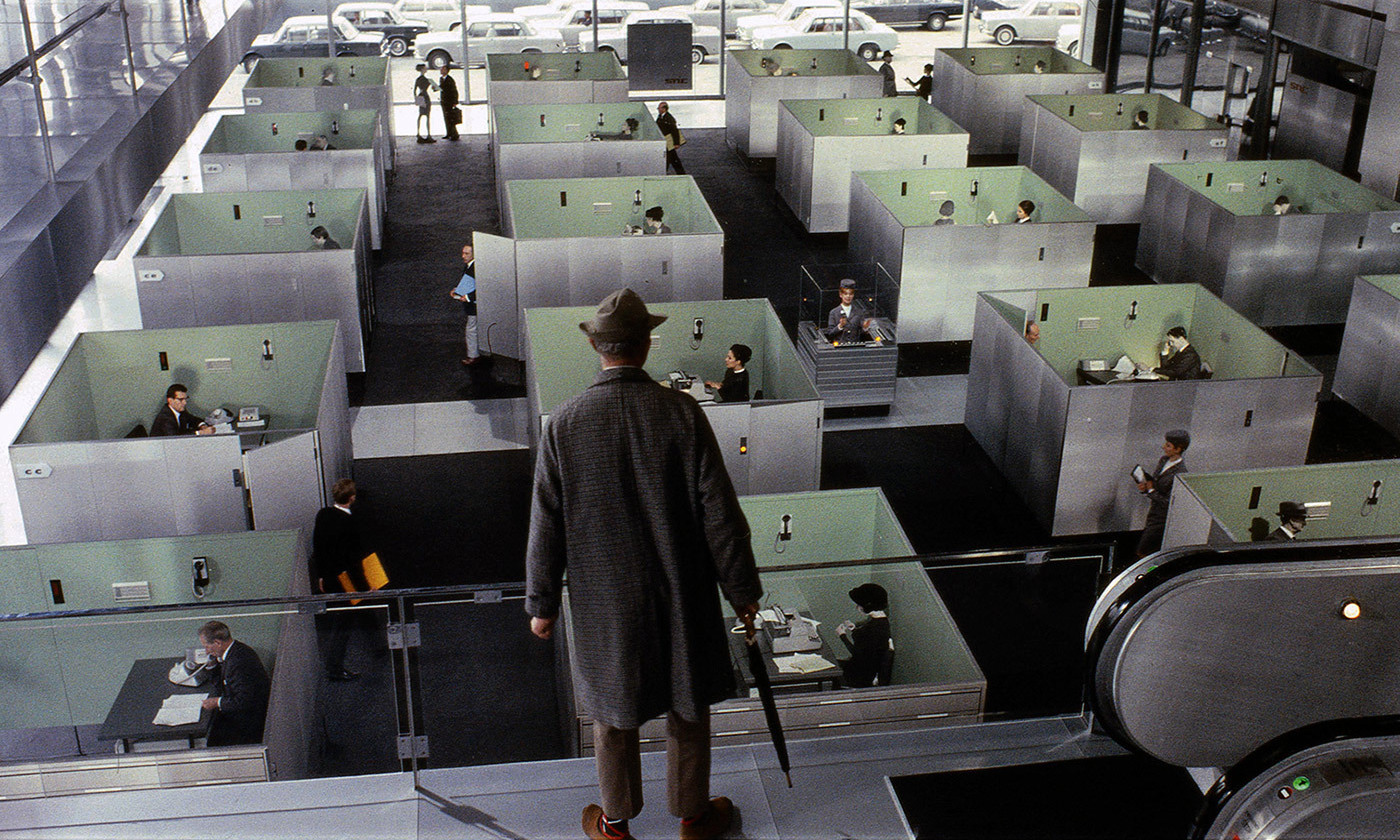From Jacques Tati’s Playtime (1967). Image courtesy Les Films de Mon Oncle – Specta Films CEPEC
More and more companies, government agencies, educational institutions and philanthropic organisations are today in the grip of a new phenomenon. I’ve termed it ‘metric fixation’. The key components of metric fixation are the belief that it is possible – and desirable – to replace professional judgment (acquired through personal experience and talent) with numerical indicators of comparative performance based upon standardised data (metrics); and that the best way to motivate people within these organisations is by attaching rewards and penalties to their measured performance.
The rewards can be monetary, in the form of pay for performance, say, or reputational, in the form of college rankings, hospital ratings, surgical report cards and so on. But the most dramatic negative effect of metric fixation is its propensity to incentivise gaming: that is, encouraging professionals to maximise the metrics in ways that are at odds with the larger purpose of the organisation. If the rate of major crimes in a district becomes the metric according to which police officers are promoted, then some officers will respond by simply not recording crimes or downgrading them from major offences to misdemeanours. Or take the case of surgeons. When the metrics of success and failure are made public – affecting their reputation and income – some surgeons will improve their metric scores by refusing to operate on patients with more complex problems, whose surgical outcomes are more likely to be negative. Who suffers? The patients who don’t get operated upon.

